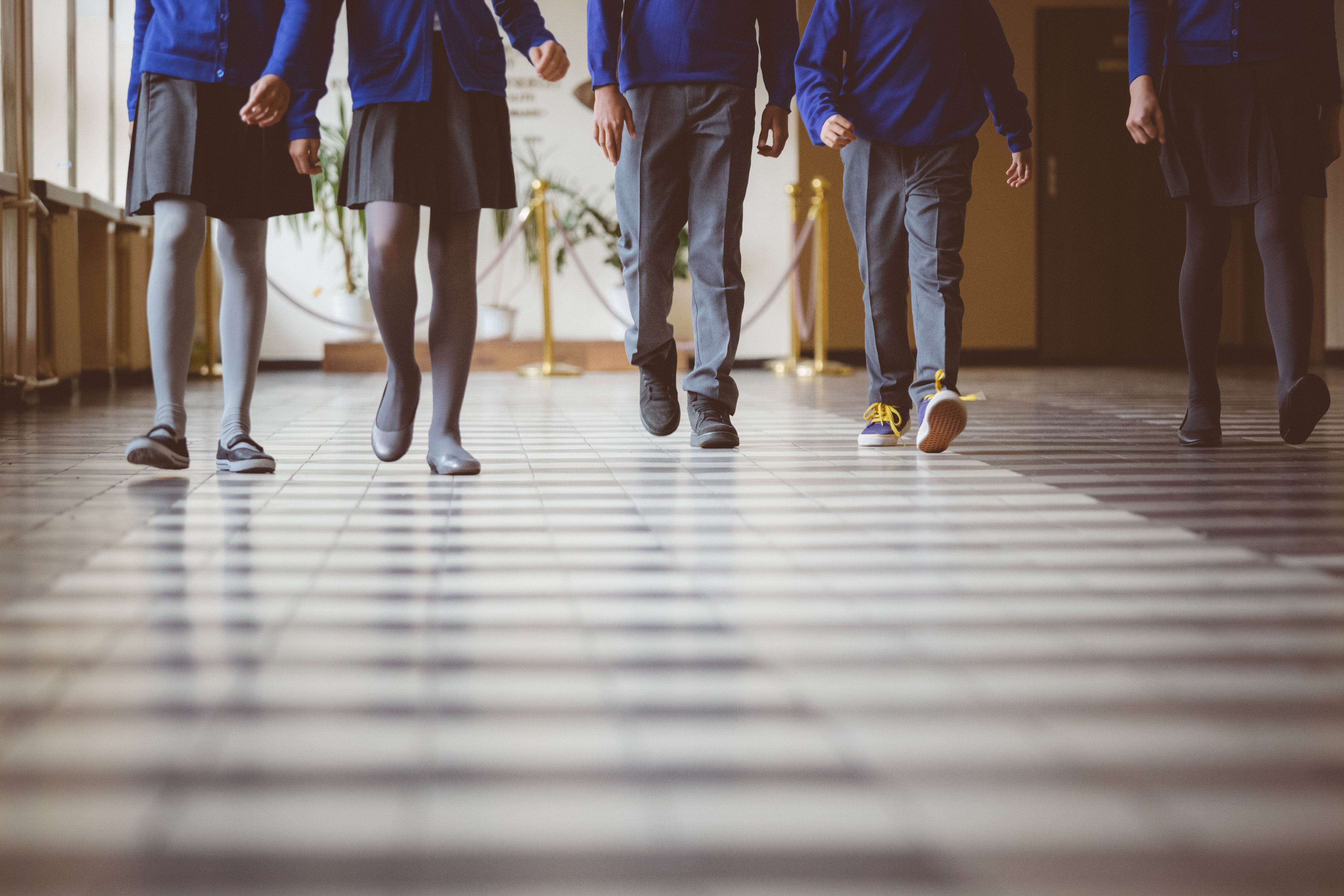Demand for school places ‘greatly increased’ since spring lockdown, poll finds amid calls for teachers to get vaccinated
Union leader says it is ‘understandable’ parents are asking why their children are at home while ‘so many are not’

Your support helps us to tell the story
From reproductive rights to climate change to Big Tech, The Independent is on the ground when the story is developing. Whether it's investigating the financials of Elon Musk's pro-Trump PAC or producing our latest documentary, 'The A Word', which shines a light on the American women fighting for reproductive rights, we know how important it is to parse out the facts from the messaging.
At such a critical moment in US history, we need reporters on the ground. Your donation allows us to keep sending journalists to speak to both sides of the story.
The Independent is trusted by Americans across the entire political spectrum. And unlike many other quality news outlets, we choose not to lock Americans out of our reporting and analysis with paywalls. We believe quality journalism should be available to everyone, paid for by those who can afford it.
Your support makes all the difference.Most school leaders have said demand for classroom places has “greatly increased” compared to lockdown last March, amid calls for teachers to get put on vaccine priority list.
Concerns have been raised over the numbers of children still attending school, after England’s new lockdown moved learning online for all but key workers’ children and vulnerable children until at least until mid-February.
Thirty-four per cent of school leaders said they had more than one third of children still physically in school in a new survey from school leaders’ union NAHT.
Meanwhile, 74 per cent said demand for places from key worker families and vulnerable children had “greatly increased” compared to last spring’s lockdown.
Twelve per cent said they had more than 41 per cent of pupils in, initial data from the poll of members showed.
Follow the latest news live as Professor Chris Whitty warns UK ‘to face worst weeks of pandemic’
Paul Whiteman, NAHT general secretary, said the union was worried high levels of attendence “could seriously undermine the impact of lockdown measures” and even risk prolonging school closures.
“In these circumstances it is understandable why quite so many parents with children at home are questioning, with some degree of frustration, why their children are being asked to stay at home when so many aren't,” he said.
“This situation is incredibly difficult for parents. The increase in demand for places compared to the national lockdown last March is very concerning.”
The survey comes amid calls for teachers to get placed on the priority list for vaccinations, with a parliamentary petition – signed hundreds of thousands of times – to be debated in parliament on Monday.
Professor Chris Whitty, England’s chief medical officer, said on Monday the priority list for the vaccine was based on those most likely to die from Covid-19. He told BBC Breakfast teachers were a "very important group, but they're not at any greater risk in terms of dying than other professional of their age".
The chief executive of a multiacademy trust in Leeds has called it “extraordinary” that teachers and school staff are not being prioritised in the roll-out of the coronavirus vaccine.
“Ensuring frontline school staff are healthy is essential if we are to keep schools open so children can maintain their education,” Sir John Townsley from the GORSE Academies Trust said.
With education now online for many pupils, the NAHT has called on the government to tell headteachers how many pupils is “too many” on site, after the union said last week demand for places appeared “much higher” than last spring.
The NAHT said it was “critical” places for key workers children were only used when “absolutely necessary”.
Department for Education (DfE) guidance says schools should not limit the number of children of key workers on-site during lockdown, and only one parent needs to be a critical worker for their child to attend class, even if parents are working from home – although critical worker parents should keep children at home “if they can”.
Gavin Willamson confirmed last week students without laptops, desktops or tablets would be able to access education in school during the latest lockdown, as was the case in last spring’s lockdown.
The Independent understands this was not explicitly mentioned in original first lockdown guidance.
The NAHT survey, which polled heads last Thursday, found more than one third of headteachers said one to 10 per cent of students who attended school came in as a result of vulnerability due to a lack of devices or quiet space.
A DfE spokesperson said: “We expect schools to work with families to ensure all critical worker children are given access to a place if this is required. If critical workers can work from home and look after their children at the same time then they should do so, but otherwise this provision is in place to enable them to provide vital services.”
They added: "The protective measures that schools have been following throughout the autumn terms remain in place to help protect staff and students, while the national lockdown helps reduce transmission in the wider community."
Nadhim Zahawi, the vaccines minister, also suggested on Monday that teachers – along with police officers other critical workers – will be in the "highest category of phase two" of the vaccine rollout.
Phase one includes the clinically vulnerable, the elderly and NHS and social care workers.
Professor Wei Shen Lim from the Joint Committee on Vaccination and Immunisation (JCVI) said the group’s vaccine prioritisation advice is aimed at preventing as many deaths as possible. “As the single greatest risk of death from Covid-19 is older age, prioritisation is primarily based on age,” the JCVI’s Covid-19 chair said.
“It is estimated that vaccinating everyone in the priority groups would prevent 99 per cent of deaths, including those associated with occupational exposure to infection," he added.
A Department for Health and Social Care spokesperson said they are following JCVI advice on Covid-19 vaccine prioritisation, which says the “immediate priority” should be preventing deaths and protecting health and care staff.
They added: “The JCVI have considered evidence on the risk of exposure and risk of mortality by occupation. Under the priority groups advised, teachers aged over 50 years of age or in a medical risk group would be eligible for vaccination.”
Additional reporting by Press Association




Join our commenting forum
Join thought-provoking conversations, follow other Independent readers and see their replies
Comments